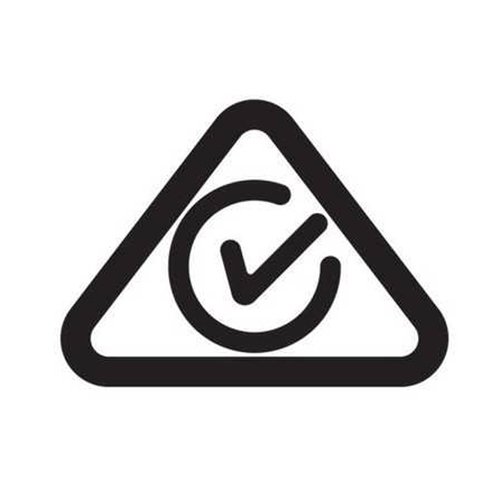Australia and New Zealand are introducing the RCM logo, a trademark owned by Australian and New Zealand regulators that says products meet both safety and EMC requirements and are optional.
Since March 1, 2013, products can only be sold on the market after the registration and filing of the Australian national database EESS and the printing of the RCM logo. The transition period is 3 years. Starting from March 1, 2016, the mandatory three-year transition period has expired, and the RCM mark is fully implemented. Some products need to apply for SAA certification before applying for RCM certification. Products not registered and labeled with the RCM logo will not be allowed to be sold in the market. SAA certification and c-tick certification will be phased out and replaced by RCM certification, which covers safety and EMC (c-tick may still be applicable to some low-power wireless products)
Before this, because the Internet cannot verify the authenticity of the certificate, resulting in market chaos. The government established the EESS national database to regulate the market. Once the product is successfully registered with EESS, buyers from all over the world can find the relevant information of the product on the official website of the government, which will attract more Australian buyers and help you successfully explore the international market such as Australia and New Zealand.
Applicable national
Kiribati, Fiji's Solomon islands, nauru, Australia
Micronesia federated states of tuvalu New Zealand tonga Marshall islands vanu Papua New Guinea Samoa

Australian RCM certification scope
In Australia, the risk Level of electrical products is divided into three levels: Level 1, low risk; Level 2 medium risk category; Level 3 is high risk, with a list of 56 products.
Level 1 certification requirements: generally refers to dc power supply products (direct application for RCM certification by providing EMC reports) (that is, c-tick).
Level 2 certification requirements: ac power supply products (provide EMC report + safety report for RCM certification) (i.e. C-tick).
Level 3 certification requirements: refer to the following list (provide EMC report + safety report +SAA certificate) to apply for RCM certification +EESS registration.
As long as it is electrical products, the voltage range in ac 50V~~1000V; Dc between 120V and 1500V must comply with the requirements of the electrical safety act of Australia.
RCM certification process in Australia
1. Issue the test report according to the standards within the scope approved by CNAS
2. Submit an application form for RCM certification in Australia
3. The test report shall be submitted to the Australian certification authority for document review
4. Australian institutions review test reports
5. Australia passed the examination and issued the RCM certificate
6. The customer can register the Australian website by himself or by the laboratory;
The information required to apply for RCM certification is as follows
1. Product specification and specification
2. Schematic diagram of circuit
3. List of components for product shutdown
4. List of product model differences
5. Additional model photos
6. 3 main test model samples
7. Product application form
RCM certification cycle: determine the time according to the information provided by the customer. Apply for RCM certification with SAA certificate and EMC report for 1-2 weeks
RCM certification fee: according to the registration years, several types of products, whether there is an Australian agent to determine the price

